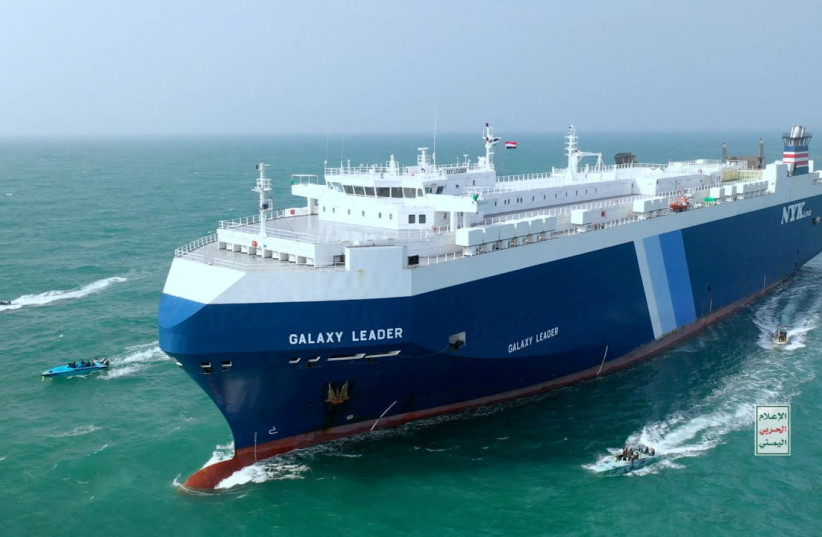The United States plans to maintain a significant force presence in the Middle East, including warships with ballistic missile defense capability, some of which are in the Red Sea to deter Houthi attacks against cargo vessels, US National Security Council spokesman John Kirby told reporters in Washington on Wednesday.
“The United States does not seek conflict with any nation or actor in the Middle East, nor do we want to see the war between Israel and Hamas widen in the region,” Kirby said.
“But neither will we shrink from the task of defending ourselves, our interests, our partners, or the free flow of international commerce,” he said.
On Tuesday, he explained, US President Joe Biden spoke with Israel’s Prime Minister Benjamin Netanyahu, while US National Security Advisor Jake Sullivan spoke with Israel’s Strategic Affairs Minister Ron Dermer. On Wednesday, the US, along with 12 other nations published a joint statement “condemning Houthi attacks on commercial vessels in the Red Sea and reiterating that these attacks must cease immediately,” Kirby said.

The signatories were Australia, Bahrain, Belgium, Canada, Denmark, Germany, Italy, Japan, Netherlands, New Zealand, Singapore and the United Kingdom.
Continuing presence in the Middle East
Kirby stressed that, “We have established and will continue to maintain a significant force presence in the Middle East,” including an aircraft carrier strike group centered around the Dwight D. Eisenhower with 80 aircraft and an amphibious ready group with its embarked 26th Marine Expeditionary force led by the assault ship USS Bataan that was moved into the eastern Mediterranean, Kirby stated.
It did so as the Gerald R. Ford aircraft carrier group headed back to the US, Kirby added.
“Now, between the Bataan and the two other ships of her group, the USS Mesa Verde and the USS Carter Hall, this consolidates in that part of the Mediterranean more than 4,000 sailors and marines and more than 50 aircraft,” Kirby stated.
“These ships and their Marines are augmented by three additional squadrons of fighter and attack aircraft that are based ashore and additional highly capable warships at sea, including a number of destroyers that are specifically designed for ballistic missile defense,” he stated.
“Some of those warships are operating in the Red Sea, where they — alongside the ships, aircraft, and capabilities of more than 20 other nations — continue to counter Houthi attacks on civilian maritime shipping,” Kirby said.
There are more than 4,000 sailors and marines and more than 50 aircraft in the eastern Mediterranean, Kirby said, adding that a number of the destroyers are designed for ballistic missile defense.
He underscored US military prowess in the region amid heightened tensions that followed two explosions in Iran that killed more than 100 people and wounded scores at a ceremony earlier on Wednesday to commemorate the US assassination of its top commander Qassem Soleimani. That followed a drone assassination of Hamas deputy leader Saleh al-Arouri in Beirut on Tuesday.
Kirby dismissed reports that Israel was behind the Iranian explosion and Arouri's assassination.
In speaking of the Iranian explosion, State Department spokesperson Matthew Miller said, “I do want to address some of the irresponsible claims that I have seen circulate and say that, number one, the United States was not involved in any way, and any suggestion to the contrary is ridiculous; and number two, we have no reason to believe that Israel was involved in this explosion.”
